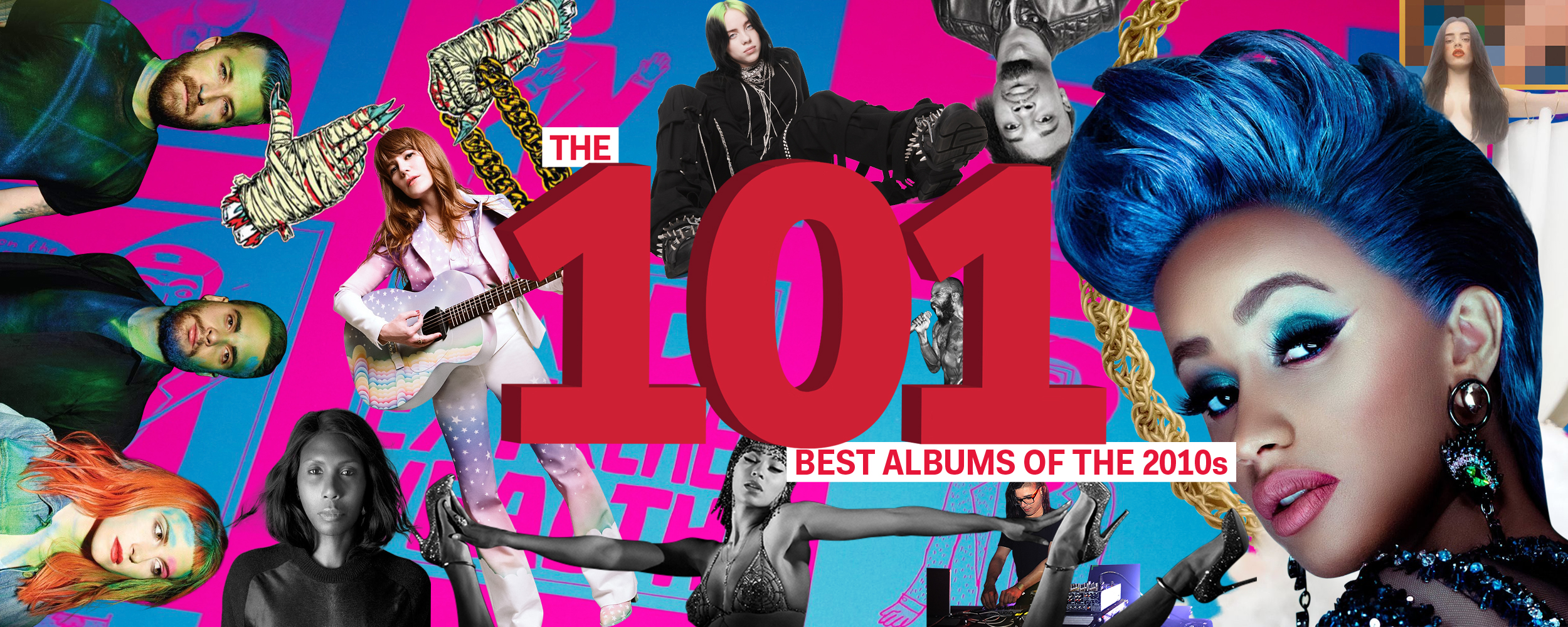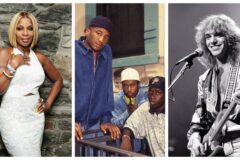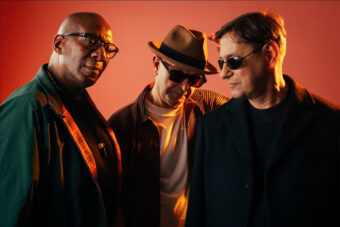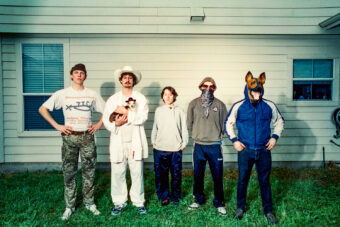10. Tierra Whack, Whack World (2018)
“Albums” formatted this ambitiously (and “released” via Instagram) are rare; rarer still is the ambitiously formatted album that’s not an imposing monolith erected to scare off the casually interested listener. This 22-year-old former battle rapper from Philadelphia’s flawless 2018 debut is as charming and bite-sized as it is a staggering feat of craftsmanship, consisting of 15 wildly inventive songs, each exactly a minute in length. What Whack World lacks in grandiosity and winding song structures it makes up in spades via playful eclecticism, both in subject matter and sound. Take any triplicate here as an example: Tierra Whack veers from mourning a dead friend over minimal trap-pop on “Pet Cemetery” to adopting a faux-Southern accent and repelling a would-be-suitor over the amorphous synth squiggles of “Fuck Off” to lamenting a man that plays too many games (including Mario and Luigi) on the retro R&B-styled “Silly Sam.” This all occurs within three minutes, the amount of time a normal artist devotes to verse/chorus/verse/bridge/chorus. The songs juggle heavy emotions behind the presentation as a goofy, tossed-off curio.
Whack World the music video is even more impressive, a 15-minute candy store of vibrant looks, sets, and concepts that change completely from one scene to the next. It’s the instant-gratification Vine counterpoint to the HBO of Beyoncé’s visual albums, replacing every moody color with neon but still managing to convey the full gamut of the human emotional experience in its brief, episodic structure. The following year, Whack proved that she’s also mastered the art of more conventional songwriting with a thrilling month-long run of singles, and that she hadn’t yet run out of jaw-dropping visuals. But she made history with that first thunderbolt no matter what follows: Whack World is the rare album whose form is as interesting and charming as its content. — P.L.
9. Vampire Weekend, Modern Vampires of the City (2013)
Vampire Weekend’s third album was the kind of progressive leap forward that bands always threaten to make but never quite stick the landing. The late ’00s Vampires’ gift for catchy, polyrhythmic melodicism and an infinite palette of sonics made them a sort of musical Wes Anderson movie; easy to admire but one was just as likely to be annoyed by them — sometimes in equal measure. For a band that once seemed easy to hate, the polished songcraft and emotional urgency was suddenly undeniably resonant.
Referencing Modest Mouse while interpolating Souls of Mischief is no ordinary task, and Ezra Koenig makes his band’s encyclopedic references and genre-juggling seem both effortless here and tied to a higher purpose. The instrumental gifts of Rostam Batmanglij underscore the wordplay with the orchestral trickery and broad sonic soul the band is known for, but there’s more spiritual and aural weight here than on their Afropop-obsessed earlier work. This is a focused, dark record haunted by mortality down to the ticking clock on “Hudson,” and the best rock album of the 2010s. Modern Vampires of the City succeeds at everything it has the guts to gamble on, and that’s saying a lot when Koenig spends “Ya Hey” talking to God between the deity’s festival DJ sets. — S.W.
8. Cardi B, Invasion of Privacy (2018)
A decade ago, Cardi B’s stripper-turned-reality star-turned-mixtape backstory would have made her a smart-mouthed novelty. Instead, this revenge-of-the-thirst-trap debut LP served as a showcase for Cardi B the person, and not just the skurr-skrting, Bernie-stanning FashionNova icon. On one end, there’s street Cardi, capable of infusing more energy and bravado into her rhymes than anyone else north of Atlanta with the comedic flair of a Friars Club roastmaster. But Cardi also raised the bar for sheer force of superstar personality, where she can put three incendiary odes to hedonism — “Money Bag,” “Bartier Cardi,” and “She Bad” — back-to-back-to-back and still come off as inspirational. For all the brashness of her early singles, Invasion of Privacy works because of its introspection: “Only thing fake is the boobs.”
Whether it’s “Be Careful” revealing cracks in her tough exterior or the closer “I Do” reveling in the possibility of short-lived fame, or “I Like It” proving once and for all that Latinx hip-hop can be, simply, pop music, Invasion of Privacy is an invitation into Cardi’s world of blood, sweat, and tears. It’s a rebuke to much of what passes for chart-focused rap, where the artist’s persona is crafted for maximum exposure. Instead, Cardi B recognized that POC artists no longer need to pander or soften themselves in order to become household names (she co-hosted The Tonight Show for Christ’s sake!). Invasion of Privacy opens the table to a new generation of pop artists remaking American music in their own image and accents. And Cardi will remain front-and-center. After all, these shoes are bloody for a reason. — A.C.
7. Grimes, Art Angels (2015)
Years before she became more well-known for being eligible for a lifetime achievement award in trolling, all that rocketed to the surface of Claire Boucher’s music was its mystery. The drowned-reverb haze of Visions entranced critics of a hipper stripe, but her less defined early work would grow in confidence by unpredictable bounds. So her fourth album was a candy-explosion surprise – after three years of tactful tooling, avowedly sober, and chasing dreams of Gaga-level ubiquity, Grimes had come up with a DIY pop monolith more purely visionary than anything Stefani G had put her name on.
Having sung/played/programmed everything save for one sample and Aristophanes’ and Janelle Monáe’s drop-ins, her every effervescent note on this one-woman show (plus the cover art she drew and videos she self-directed) glimmers with proud artifice, the vocals a rainbow panoply of helium filters. But from the stark hope of the countryish “California” (“This music makes me cry / It sounds just like my soul”) she shows more of her human side than she’d ever let us in on — the overture is titled “laughing and not being normal.” Amid surrealistic allowances like larynx-dynamiting “Scream,” the auteur essays perfect, pro-hook takes on toxic masculinity (“Kill V. Maim”), toxic love (“Flesh Without Blood”) and the sexist onslaught our many of our modern pop heroes have to fight through (“Butterfly”). “Welcome to reality,” she coos, sounding like nothing from this world. Which must be why she spelled it “REALiTi.” — R.M.
6. Kanye West, My Beautiful Dark Twisted Fantasy (2010)
Say whatever you will about MAGA-hat-wearing, static-Christian-opera-directing, “last night I thought about killing you” present-day Kanye West. Before he OD’d on the belief in his own divine genius, he very nearly earned his narcissism simply by releasing one groundbreaking, extravagant, possibly-perfect full-length after another. By 2010, he had almost expectedly culminated his streak with this gilded work of audio-visual art, one of the greatest albums of the contemporary age. Released in 2010 after the Taylor Swift incident, My Beautiful Dark Twisted Fantasy was recorded with a cavalcade of trusted collaborators in self-imposed Hawaiian exile and marked the dawn of what was probably West’s public unraveling, when his questionable ideas weren’t yet inextricable from his brilliant ones.
As the title implies, his fifth album is opulent, self-absorbed, grandiloquent, the sound of a soul at war with itself. Lyrically, he’s never been more intense, with stranger jokes (“Put the pussy in a sarcophagus”), pornographic fantasies (“We both screwed the bridesmaids”), and a not-yet-corrupted ability to tell it like it is (“Balding Donald Trump taking dollars from y’all”) against musical frescoes sampling not only Rick James, Smokey Robinson, and James Brown, but King Crimson, Aphex Twin, Black Sabbath, the Napoleon Dynamite soundtrack. “Monster” solidified Nicki Minaj’s place in history and Justin Vernon’s contributions gave his career its second act, while Pusha T, Rihanna, Rick Ross, Raekwon, Kid Cudi and Jay-Z all contributed to the magnificence.
With My Beautiful Dark Twisted Fantasy, rap ascended even further into the realm of high-art, and Kanye began consummating his vocal ambition to be the next Shakespeare or Disney by accompanying his most grandiose LP with a 34-minute feature film: “Runaway” is an abstract, extended metaphor on beauty and its ills, itself one of the most gorgeous and luxurious visions a musician has set to celluloid. But more importantly, Kanye expanded what high-art could be as well as he did rap; his conception made room for ballet, horror films, Gil Scott-Heron, and the unforgettable sequence in which Chris Rock is party to the words, “Yeezy upholstered my pussy.” Can it get much higher? — K.B.
5. Skrillex, Bangarang (2011)
It’s not that shocking that after more than a decade of dance music ruled by a litany of European acts (the Chemical Brothers, the Prodigy, DJ Tiësto, Daft Punk, Basement Jaxx), America’s homegrown EDM megastar sure sounds a lot like rock music. In probably the least guitar-prominent decade for music since rock’n’roll’s very inception, the loud distorted squall of the instrument was most closely brought to life via this onetime emo kid and his famous wub-wub-wubs. Skrillex showed that dance music could be as noisy and distorted and punk as anything a real guitar has ever contributed to. Sonny Moore’s unruly American spin on largely European trends is symbolic of a very un-rock decade, and some of the last great pop music to truly break the sound barrier. The Los Angeles native’s Bangarang, which was considered an EP at the start of the decade (if maybe not post-Wyoming Kanye), delivered the most fun half-hour of the 2010s, with shamelessly huge, sexy beats, slick car-alarm dubstep, and an inexhaustible abundance of mind-breaking, chemically-tinged EDM pyrotechnics.
For the former frontman of From First to Last, his unlikely second act as a producer who changed dance music forever led to multiple Grammys – including one for the unstoppable, Sirah-assisted title track and Best Dance Album for the whole record, despite electronic gatekeepers initially turning their noses up – and turned him into a summer-festival hero. Deliciously addictive, Bangarang remains awash in melted-gummy synths, woofer-torturing basslines, and eye-gouging electro. There were the unexpected collaborations too, like “Breakn’ a Sweat,” which featured the surviving members of another L.A. outfit – the Doors (and a Jim Morrison sample predicting the rise of electronic music) – “Summit” with then-paramour Ellie Goulding, and even his own “Orchestra Suite” bonus track. Dance music may have broken a bit later in the U.S. than some predicted, but it was inevitable that an artist this thrilling — a visionary of sound design who turned Justin Bieber into a dolphin — would push it over the top. — J.L. & D.W.
4. Beyoncé, Beyoncé (2013)
Where were you when Beyoncé stopped the world? On an unassuming Thursday night, when most people were either getting ready for bed or still reeling over the latest drama-filled episode of ABC’s Scandal, King B shook everyone by surprise-dropping her eponymous fifth album on iTunes. To this day, the music industry has yet to figure out how to top Beyoncé, as a multimedia tour de force and sheer news event — the only person who has is Beyoncé herself.
After being previously accused of being too robotic and having a cold personality, she opened up her previously shielded world to dedicated Beyhive fans and a sudden battalion of converted critics. With the help of an impressive crew of frequent collaborators and then-newcomers such as Boots and Majid Jordan, Beyoncé stretched her sonic capabilities more than ever at the time (this reached its peak with 2016’s weighty Lemonade). The album was a kaleidoscopic experience that heightened the senses, with each song being brought to life by unforgettable visuals: The colorful “XO,” “Partition” set inside Parisian cabaret Crazy Horse, and “Superpower,” with its surprise Destiny’s Child reunion. “Pretty Hurts” and “Jealous” found her face-to-face with her insecurities, the club-ready “Drunk in Love” gave way to endless SURFBORT memes, “Blow” was best paired with disco lights and rollerblades, “Partition” and “Rocket” highlighted her innate provocative nature, and “***Flawless” which featured Nigerian novelist Chimamanda Ngozi Adichie was an unprecedented summit of women’s continuous fight for gender equality.
Hit records came easy for Beyoncé at this point in her career. By the turn of the decade, R&B experienced a renaissance; the likes of Frank Ocean, the Weeknd and FKA twigs weren’t just groundbreaking but recognized as such, creeping up behind hip-hop and surpassing rock entirely as the more innovative, album-centric genre. And Beyoncé herself sought a new lyrical approach and more challenging music with no regard for airplay. In a vulnerable move that set the foundation for Lemonade, the self-titled album found the famously guarded singer more candid than ever. She wasn’t afraid to openly get drunk with her man, express irritation with society’s treatment of women, or reveal complications with motherhood and the issues that come with long-term marriage. Black women are often urged to be silent, yet Beyoncé made it more comfortable to own and express your identity.
The greatest surprise album of all-time went on to rack up numbers: It was nominated for five Grammy Awards, took home three, secured her Video Vanguard Award at the 2014 VMAs, became the fastest-selling album in iTunes’ history, and earned Beyoncé the distinction of being the first female artist to have her first five albums debut atop the Billboard 200 chart. But Beyoncé managed something even more significant than any of that. Not only did she cement her title as the world’s greatest entertainer, she profoundly redefined its meaning. — B.G.
3. The Knife, Shaking the Habitual (2013)
Sure, No. 3, but what it sounds like is the No. 1 album of the 2030s. Karin and Olof Dreijer were already pushing their macabre synth-pop into sui generis territory on 2006’s Silent Shout, but seven years later, their apparent swan song Shaking the Habitual seemed to have discovered a new, alien landscape: Chilly, omnirhythmic, a realm where every sound was a beat, even if the sound was 19 minutes of drone. “We’ve been running round / Pushing the shopping cart,” Karin confesses in the opening moments of a 96-minute anticapitalist theme-park ride. One of the things this album has in common with you now that it probably didn’t then is how much it slows down — except when it freaks out.
The habits it’s shaking are of power, of class, of sex, of ideology, even as they’re also habits of synth-pop composition; but it’s not called Shake the Habitual!, because its title isn’t exhortation or advice. It’s something that’s already happening because change is life’s natural business. (“I want to bend my soul again,” Karin sings on “Raging Lung,” a 10-minute symphony for steel drum and what sounds like the whacked side of an oil reservoir. “That’s what we do when we get older.”)
Against controlling “signoris,” brutal inequity, and — in the album’s funniest moment, an obsessively repeated gurgle that drills into the skull — “liberals giving me a nerve itch,” the Knife set the same permanent opposition: transformation. What banishes that hammering itch is the crooned counter-mantra that Karin breaks into a second later: “Now living, and always moving.” At the peak of a manic trip on “Without You My Life Would Be Boring” she suddenly concocts a plan: “What if we can’t make it / But we say that we can?” Around her, a dissonant flute-riot turns out to be moving with the beat like everything else. In 2013, maybe you already felt a radically transformed way of life — radical transformation as a way of life — was, in the face of various hard-to-solve problems, a duty, and necessity. Maybe, while pushing the shopping cart, jamming avant-garde Swedish synthpop on your iPod Nano, confidently inhaling raw supermarket air, you wondered whether or not you were obliged to commit to all that right now. In 2020, maybe it feels more like something that’s committed to you. That’s the bad news, and the good: You’re already shaking. — T.W.
2. Kendrick Lamar, To Pimp a Butterfly (2015)
By the Spring of 2015, Kendrick Lamar had already solidified himself as a deep-thinking rapper who was not only one of the best professional rappers alive, but also one with the kind of cultural capital and marketplace real estate that marked him as a once in a generation rap artist. For To Pimp a Butterfly — his second major-label studio album — he put his entire net worth on an impolite polemic against whyte supremacy that reinforced that Black Lives Matter without ever invoking the slogan and rarely mentioning whyteness. From the opening — a snippet of Boris Gardiner’s “Every Nigger Is a Star” that segues into a cosmic slop courtesy of brain feeder Thundercat and funk Godfather George Clinton — the Compton MC mortgaged his brand into a wild vision of counter-gentrification American Blackness: “I’ma put the Compton swap meet by the White House.”
If his major debut, good kid, m.A.A.d city, was about an astute young Black kid looking around his Los Angeles war zone and looking for peace and sense inside, Butterfly was about a young Black man looking at his America and not finding any shelter anywhere. From first listen, the album made clear that it would not be easily made over to fit into any cookie-cutter models. Instead, it sprawled into the underbelly of fame, squatting with depression, and treating introspection like a series of gang walks, sweaty backyard cookouts, block parties, and street riots. There were no easy singles and even the ones that emerged felt more like they were carpetbagging on mainstream grounds than trying to move on up.
Produced by a squad of design-bending architects that included Pharrell Williams, Flying Lotus, and Terrace Martin in addition to in-house talents Tae Beast and Sounwave, the album was simultaneously retro, modern, and futuristic: Suites of free-flowing live instrumentation buttressed by swampy floors of bass and moulded by synthesizer flourishes. To Pimp a Butterfly immediately emerged as timely and timeless, and five years on — with the country excavating the foundation of itself and removing statues from public spaces — it remains a necessary reminder that this stolen land of the free was built by the souls of Black folks whose houses have many rooms. — k.e.
1. Rihanna, ANTI (2016)
We’d become so used to Rihanna spoiling us with new albums nearly every year. So it came as somewhat of a shocker when that impressively prolific trajectory halted. The pop star took a step back (four years to be exact) to contemplate where her sound should go next. That self-reflection birthed her universally worshipped eighth album, whose very essence is explained right in the title. ANTI is the antithesis of what fans and industry critics came to expect from her. Before the age of 30, Rihanna crafted the most purely enjoyable album of the 2010s by embracing her fully realized womanhood. ANTI is a double-edged journey: One on end, it is a collection of diamond-studded hooks that roam through the multiple stages of love. And on the other, it’s the singer (who had just left her longtime record label Def Jam) taking a leap of faith by further shedding that manufactured facade of being The Pop Star. Gone were the glittery, chart-friendly credits of Sia or Stargate. No, Rihanna was ready to get weird, erotic, and unfiltered. The year prior, “Bitch Better Have My Money” was the first sign of ANTI’s snarling aggressiveness and sonic exploration, even though it didn’t make the final cut.
The SZA duet “Consideration” is her owning newfound career independence (“I got to do things my own way darling/ Will you ever let me? Will you ever respect me? No”), while “Kiss It Better” is an irresistible ‘80s pop ballad with squealing guitar that quietly made for one of the greatest Prince tributes following that devastating loss three months later. Rihanna embraces her Caribbean heritage with the patois-laced “Work” smash and Drake following her lead like a lost puppy, and she channels a Quentin Tarantino-worthy fugitive on the bluesy “Desperado.” She goes full-on pained doo-wop starlet in “Love on the Brain,” while cheekily provoking a former beau with the seductive “Needed Me.” The sonic versatility of ANTI impressively has zero boundaries. “Higher” stretches her whiskey-throated vocal limit to the max for her most risky performance, and a karaoke version of Tame Impala’s “New Person, Same Old Mistakes” tossed in for the hell of it becomes infinitely better than the original. And she gets absolutely buckwild on “Sex With Me,” the hedonistic bonus track that’s literally about how great sex with her is.
By breaking her own rules, ignoring her long-satiated craving for a hit record, and accepting the authority of her own artistry, Rihanna once again became a trendsetter. “It might not be some automatic record that will be Top 40,” she told Vogue in 2016. “But I felt like I earned the right to do that now.” Of course, she was always able to do whatever she wants. But few pop stars ever realize the full possibilities of that. This time, Rihanna embraced tunnel vision and pushed her boundaries off the map. And the end result just happened to be the best album of the decade. — B.G.
Enjoy our playlist of songs from these albums below.





